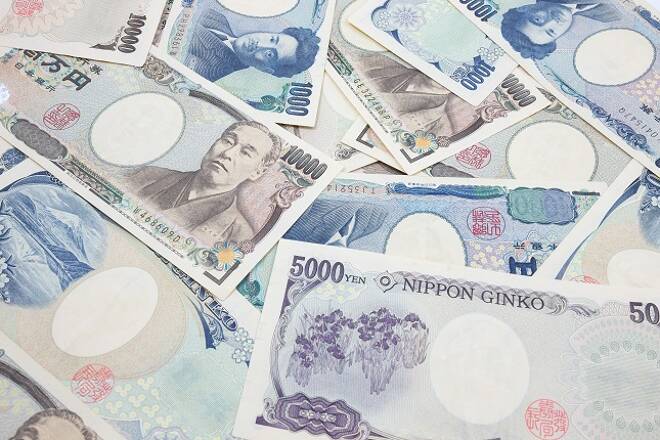Advertisement
Advertisement
USD/JPY Fundamental Daily Forecast – Dollar/Yen Sellers Set Their Sights on 100 Level
By:
Japan’s factory activity ended a record 19-month run of declines in December as output stabilized for the first time in two years.
The Dollar/Yen is trading lower on Monday and could be on its way to an eventual test of 100 later this year as investors continue to bet that low U.S. interest rates, massive U.S. budget and trade deficits and a belief that rebounding world trade will drive investors into riskier assets while keeping the greenback on its well-established downward course.
At 11:06 GMT, the USD/JPY is at 102.794, down 0.446 or -0.43%.
In other news, manufacturing activity expanded in Japan, according to PMI surveys, the latest indication that manufacturers in the region continue to recover from the damage caused by the COVID-19 pandemic last year.
Additionally, Japanese Prime Minister Yoshihide Suga said his government was mulling a state of emergency in Tokyo as coronavirus cases rise.
Japan Snaps 19-month Decline in Factory Activity in December – PMI
Japan’s factory activity ended a record 19-month run of declines in December as output stabilized for the first time in two years, suggesting manufacturers are shaking off the negative impact from the coronavirus pandemic.
The private-sector data contrasts somewhat with last week’s government figures that showed industrial output growth stalled in November because of declines in car production on weakening U.S.- and Australia-bound shipments.
The final au Jibun Bank Japan Manufacturing Purchasing Managers’ Index (PMI) rose to a seasonally adjusted 50.0 in December from the previous month’s 49.0 and a preliminary 49.7 reading.
The headline index hit the 50.0 threshold that separates contraction from expansion for the first time since April 2019, largely because output and employment conditions stopped decreasing, ending the longest run of declines on record.
“Japanese manufacturers signaled a broad stabilization in operating conditions at the end of a tumultuous year,” said Usamah Bhatti, economist at HIS Markit, which compiles the survey.
Japan Could Declare 1-month Virus Emergency for Tokyo Area This Week
Japan plans to declare another state of emergency in Tokyo and three neighboring prefectures, possibly to take effect for about one month from Saturday, to curb the spread of the coronavirus as infections have continued rising, government officials said Monday.
The plan comes after Prime Minister Yoshihide Suga touched on the need to consider such a special measure, following one put in place in April last year, as the greater Tokyo area is responsible for about half of the some 3,000 new daily cases reported in recent weeks.
But Suga hinted in a New Year’s press conference that social and economic activities are unlikely to be halted across the board this time, saying the state of emergency should be implemented “in a limited and focused manner.”
The officials said the measure is likely to focus on stemming the risk of infections at restaurants and bars, requesting them to close earlier and people staying home as much as possible, especially in the evenings, but no school closures are planned.
For a look at all of today’s economic events, check out our economic calendar.
About the Author
James Hyerczykauthor
James Hyerczyk is a U.S. based seasoned technical analyst and educator with over 40 years of experience in market analysis and trading, specializing in chart patterns and price movement. He is the author of two books on technical analysis and has a background in both futures and stock markets.
Advertisement
